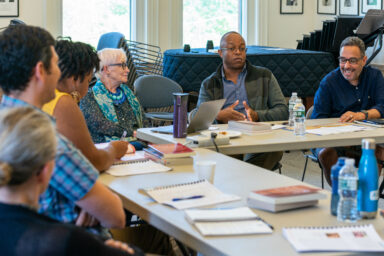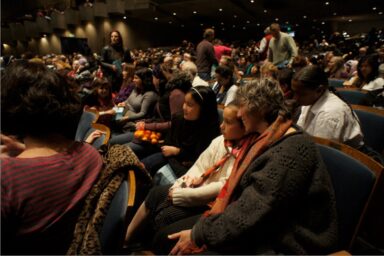Elementary Teachers’ Beliefs, Perceptions, and Self-efficacy
Fostering students’ spatial thinking skills holds great promise for improving Science, Technology, Engineering, and Mathematics (STEM) education. Recent efforts have focused on the development of classroom interventions to build students’ spatial skills, yet these interventions will be implemented by teachers, and their beliefs and perceptions about spatial thinking influence the effectiveness of such interventions.
Our understanding of elementary school teachers’ beliefs and perceptions around spatial thinking and STEM is in its infancy. Thus, we created novel measures to survey elementary teachers’ anxiety in solving spatial problems, beliefs in the importance of spatial thinking skills for students’ academic success, and self-efficacy in cultivating students’ spatial skills during science instruction. All measures exhibited high internal consistency and showed that elementary teachers experience low anxiety when solving spatial problems and feel strongly that their skills can improve with practice. Teachers were able to identify educational problems that rely on spatial problem-solving and believed that spatial skills are more important for older compared to younger students. Despite reporting high efficacy in their general teaching and science teaching, teachers reported significantly lower efficacy in their capacities to cultivate students’ spatial skills during science instruction.
Results were fairly consistent across teacher characteristics (e.g., years of experience and teaching role as generalist or specialist), with the exception that only years of teaching science was related to teachers’ efficacy in cultivating students’ spatial thinking skills during science instruction. Results are discussed within the broader context of teacher beliefs, self-efficacy, and implications for professional development research.




